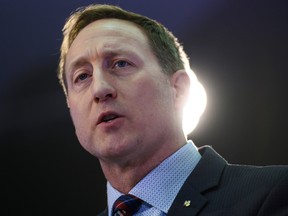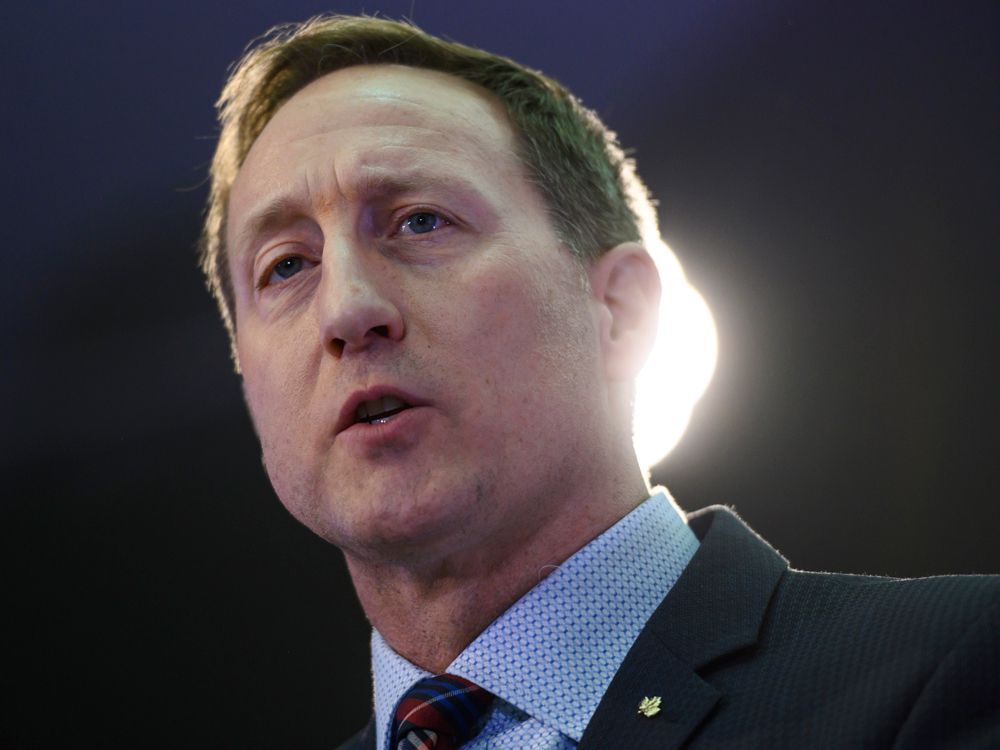Canada is near the bottom of NATO when it comes to defence spending

Article content
Former defence minister Peter MacKay called the current government’s response to the war in Ukraine “lukewarm,” and said he was unimpressed with Prime Minister Justin Trudeau’s pledge to increase security spending by $8 billion over the next five years.
Advertisement 2
Article content
“The truth of the matter is Canada finds itself really near the bottom of the 30 member NATO countries when it comes to [defence] spending,” MacKay said in an interview with the Financial Post’s Larysa Harapyn.
Canada currently spends about 1.4 per cent of its GDP on defence. Trudeau’s pledges in the 2022 budget would lift the figure to about 1.5 per cent of gross domestic product.
In 2006, NATO Defence Ministers agreed to commit at least two per cent of their GDP to defence spending to ensure the alliance was ready to respond in the face of a threat.
The spending target also has a symbolic purpose: it is meant to establish the credibility of NATO as an organization. In that way, it has become a litmus test for how committed a country’s commitment is to the alliance. Canada has been a laggard for years, including while MacKay oversaw the military between 2007 and 2013, attracting the ire of former U.S. president Donald Trump and other American politicians.
Advertisement 3
Article content
One of the reasons Canada falls short is because of “procurements,” or purchases made today, which see the money dispersed in the future, MacKay said.
“Where the difficulty arises is when you see these ‘protracted procurements’ — to coin a phrase — things that you can’t buy off the shelf. Fighter aircraft is an obvious example,” MacKay said. “It makes it increasingly difficult to be able to say with honesty that we are spending that amount, two per cent of GDP, because we’re not,” he added. “We’re earmarking it for the future as opposed to actually investing it today.”
It is the quintessential threat to global security, what’s happening inside Ukraine today
Former defence minister Peter MacKay
Of Trudeau’s $8 billion in defence spending, $500 million constitutes military aid for Ukraine, as well as $1 billion in loans for the country. It’s not enough, said MacKay.
Advertisement 4
Article content
Compared with other countries, Canada’s response has been “medium, lukewarm,” said MacKay, who is now counsel at McInnes Cooper, a law firm. He said he believes Canada could ratchet up its provision of lethal weapons such as Javelin and Stinger missiles. “Canada hasn’t really stepped up to a large degree in that space,” he said.
-

Restraint big surprise in federal budget: John Ivison
-

Chrystia Freeland finally gets serious with her second budget
-

How the budget impacts housing, energy, banking and more
McKay added that Canada could be at risk, too, given Russia’s close geographical proximity in the North. He called the NATO countries surrounding Ukraine the “proverbial Maginot Line,” which, if crossed, could trigger escalation and a third global war.
The invasion shocked many, but Ukraine has been feeling the pressure from Russia for years; so much so that it tried to join NATO in 2008, but was not admitted. “The aspirations of Ukraine were dampened,” said MacKay.
Despite MacKay’s criticism of Trudeau’s efforts in helping Ukraine, they are agreed on the threat posed by Russian President Vladimir Putin.
“It is the quintessential threat to global security, what’s happening inside Ukraine today,” MacKay said.
• Email: mcoulton@postmedia.com | Twitter: marisacoulton


